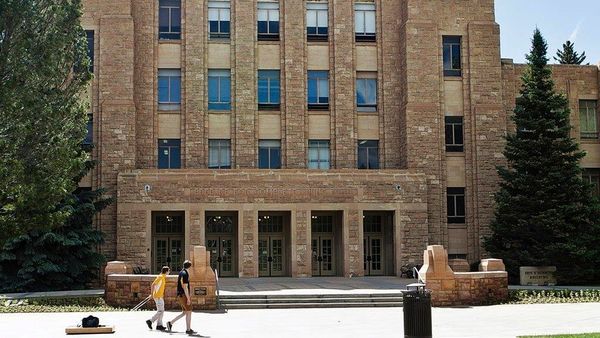August 24, 2014
A Closer Look at Discrimination Within Assisted Living Facilities
Kilian Melloy READ TIME: 3 MIN.
LGBT discrimination doesn't stop as someone ages, and no one knows this better than Bruce Williams.
The senior services coordinator at the Pride Center in Wilton Manors, Williams began working on a project to compile LGBT-friendly assisted living facilities about five years ago. He would call and knock on doors to get more information on each location, and the results were "scary," he said.
While some were open to participating in the project, others would hang up on his calls or give him "lame excuses" as to why he couldn't come inside. Just a few weeks ago, while he was speaking with a regional marketer from a large, long-term care corporation of homes, her demeanor immediately changed when she saw his business card and where he worked.
"All of a sudden there was a wall of ice between us. I tried to pitch the [Pride Center senior expo] to see if they would want to represent their facilities there and her response was, 'Well, I only have one facility that might possibly be interested in that.'"
According to the LGBT Aging Center, there are 1.5 million LGBT people older than 65 in the country. By 2030, the number is expected to double. Because LGBT seniors are more likely to be single, and without someone to care for them in old age, more are looking to find an assisted living facility to live in. However, many such facilities are not welcoming.
Williams says that he consistently receives calls once or twice a month with complaints from seniors looking for an assisted living facility. Sometimes the calls are from outside of South Florida or even the state. A gay man said he struggled to visit his partner and bring him food in hospice. A gay senior wanted to host an LGBT meet-up at his facility, and the idea was shot down.
"They would tolerate his orientation, but they were not going to tolerate any open advertising of any kind of activities," Williams said.
This is a generation that experienced immense discrimination in their youth or perhaps did not even come out until recently. With that, the problem of LGBT senior housing becomes twofold: Not only are some facilities giving this population the cold shoulder, but the fearful senior community also tends to force themselves back into the closet. This might also explain why many LGBT-exclusive facilities have not been successful, aging LGBT people are just not ready.
"We need to make changes, but those changes should not be the responsibility of the people that need the care right now. The changes need to be brought about by those of us [younger LGBT adults] who are not yet ready for it. You can't fight that battle from within; it's just too much," Williams said.
Perhaps one of the most successful facilities to the LGBT community has been Forest Trace in Lauderhill. Owner Stanley Rosenthal made bold moves by including same-sex couples in their marketing materials and ensuring that staff was trained to handle LGBT residents coming in.
"We wanted to show that we are gay-friendly and doing everything possible to reach out to and support the gay community," Rosenthal told SFGN in a previous story.
Other facilities have teamed up with the Pride Center to help host its Coffee and Conversation programming, a weekly senior discussion group that draws about 150 LGBT seniors every week. Representatives will bring coffee and snacks and mingle with participants.
"They put their money where their mouth is," Williams said. "There's always a chance that may be done just to fill beds, but you can weed that out kind of in a hurry just by visiting and talking and getting a feel for the individual."
However, even with open-minded management, should someone step down from their position, they could quickly be replaced by someone who is not in favor of LGBT residents. To avoid this, it's important for facilities to make a company-wide decision to be accepting of the LGBT community and aware of laws, to work to make accommodations within their facility and to publicize their stance so seniors know they are safe before they walk through the front doors, Williams said.
"The facilities take the lead in something like that. If they absolutely make it known and have policies to go ahead and back that up, that they are tolerant, that they are accepting, then the future resident has less to be concerned about that," Williams said. "They don't have to go in wondering."
Kilian Melloy serves as EDGE Media Network's Associate Arts Editor and Staff Contributor. His professional memberships include the National Lesbian & Gay Journalists Association, the Boston Online Film Critics Association, The Gay and Lesbian Entertainment Critics Association, and the Boston Theater Critics Association's Elliot Norton Awards Committee.





